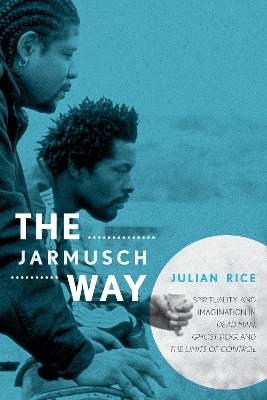
The Jarmusch Way
Spirituality and Imagination in Dead Man, Ghost Dog, and The Limits of Control
Seiten
2012
Scarecrow Press (Verlag)
978-0-8108-8572-1 (ISBN)
Scarecrow Press (Verlag)
978-0-8108-8572-1 (ISBN)
Since the early 1980s, Jim Jarmusch has produced a handful of idiosyncratic films that have established him as one of the most imaginatively allusive directors in the history of American cinema. Three of his films—Dead Man (1995), Ghost Dog (1999), and The Limits of Control (2009)—demonstrate the director’s unique take on Eastern and Aboriginal spirituality. In particular, they reflect Jarmusch’s rejection of Western monotheism’s fear-driven separation of life and death. While these films address historical issues of imperialism, colonialism, and genocide, they also demonstrate a uniquely spiritual form of resistance to conditions that political solutions have not resolved.
The impact of Dead Man, Ghost Dog, and The Limits of Control cannot be fully felt without considering the multicultural sources from which the writer/director drew. In The Jarmusch Way, Julian Rice looks closely at these three films and explores their relation to Eastern philosophy and particular works of Western literature, painting, and cinema. This book also delves deeply into the films’ association with Native American culture, a subject upon which Rice has written extensively.
Though he has garnered a passionate following in some circles, Jarmusch remains critically underappreciated. Making a case that this director deserves far more serious attention than he has received thus far, The Jarmusch Way thoroughly discusses three of his most intriguing films.
The impact of Dead Man, Ghost Dog, and The Limits of Control cannot be fully felt without considering the multicultural sources from which the writer/director drew. In The Jarmusch Way, Julian Rice looks closely at these three films and explores their relation to Eastern philosophy and particular works of Western literature, painting, and cinema. This book also delves deeply into the films’ association with Native American culture, a subject upon which Rice has written extensively.
Though he has garnered a passionate following in some circles, Jarmusch remains critically underappreciated. Making a case that this director deserves far more serious attention than he has received thus far, The Jarmusch Way thoroughly discusses three of his most intriguing films.
Julian Rice, now retired, was professor of English at Florida Atlantic University. He is the author of Kubrick’s Hope (Scarecrow, 2008).
Chapter One: Introduction
Chapter Two: Dead Man
Chapter Three: Ghost Dog: The Way of the Samurai
Chapter Four: The Limits of Control
Bibliography
Index
About the Author
| Verlagsort | Lanham, MD |
|---|---|
| Sprache | englisch |
| Maße | 160 x 236 mm |
| Gewicht | 644 g |
| Themenwelt | Kunst / Musik / Theater ► Film / TV |
| Sozialwissenschaften ► Kommunikation / Medien ► Medienwissenschaft | |
| ISBN-10 | 0-8108-8572-7 / 0810885727 |
| ISBN-13 | 978-0-8108-8572-1 / 9780810885721 |
| Zustand | Neuware |
| Informationen gemäß Produktsicherheitsverordnung (GPSR) | |
| Haben Sie eine Frage zum Produkt? |
Mehr entdecken
aus dem Bereich
aus dem Bereich
wie KI und virtuelle Welten von uns Besitz ergreifen – und die …
Buch | Hardcover (2023)
Heyne (Verlag)
22,00 €


